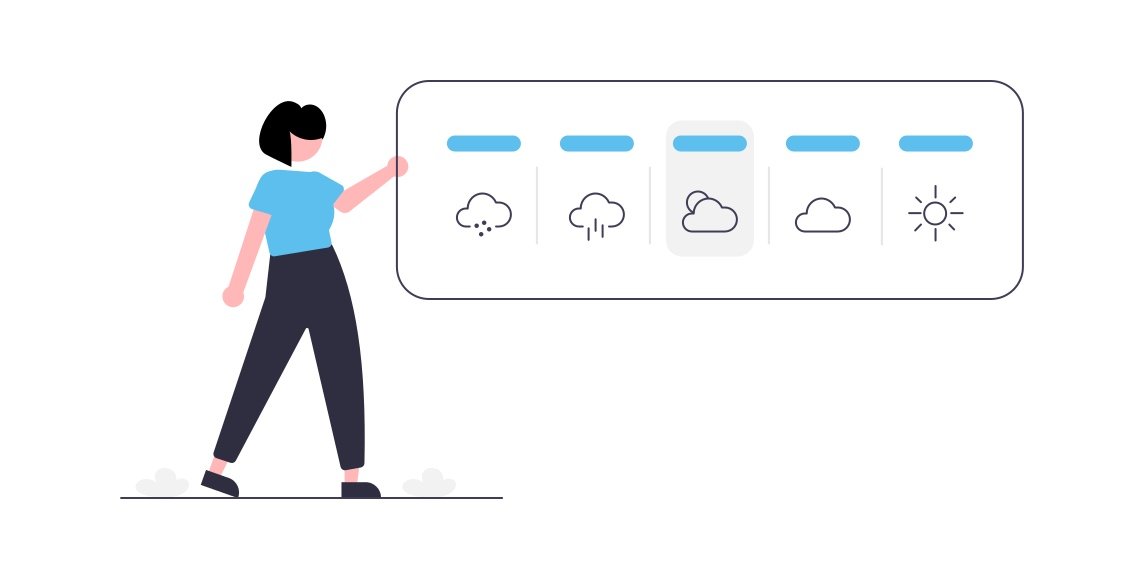Slice of Life with Sarah Restall
Sarah Restall is Senior Consultant and Head of Strategic Wellbeing and Engagement at Wellbeing With Cari, and Director of the InsideOut Charter. As a sufferer of Seasonal Affective Disorder, Sarah joins us to discuss the relationship between the weather and our wellbeing.
You suffer from Seasonal Affective Disorder (SAD). How does this impact your life and overall wellbeing?
I’m originally from New Zealand, but I was actually fine for the first five years I lived in the UK. Then over time, the impact of the weather gradually become more of a problem. Initially I just felt extra tired, and found it difficult to get going mentally in the mornings; this was really unusual for me, as I would normally describe myself as a morning person. Over the years it became a physical fatigue, and eventually, full blown morning-only depression.
I recall one morning a few years ago, cycling into the office to be on time for 9 a.m. and having to lay in the quiet room (provided to staff for wellbeing) for hours – clenched in a full body and mind depression, seized with anxiety, and staring into a SAD lamp. At that moment, it felt like an unbearable way to live; if I didn't know the symptoms would leave me around noon, I would have contemplated self-harm or escape via self-medication.
The other impact is the anxiety: I constantly worry about when these feelings will turn up.
What adjustments have you had to make to make to manage the condition?
Many years ago I 'came clean' to my employer, and told them that I suffer from savage depression in the winter months. This admission actually proved key to being able to support myself: we agreed that I would work 8-4 in the summer, and 10-6 in the winter.
I use a SAD lamp in the mornings when I have my coffee at 7, and again in the afternoons for a top up at my desk. I try my best to exercise, and joined a gym with a focus on getting my blood pumping; being at the gym also reduces the amount of time I spend staring at screens, which is good for my wellbeing.
Over winter I make a commitment to myself to get outside every single day – even if it's raining or snowing. And before a global pandemic hit, I used to take a three week holiday every February and go somewhere sunny; normally South East Asia. My SAD tends to start clearing in March, so this helps immensely. I actually told my employer at interview stage that I suffer from SAD, and that taking the bulk of my holiday in February is an essential part of managing this; that is how important it is to me!
In more dramatic news, three and a half years ago I made the leap to leave the city (London) and move to the seaside (Margate). Moving may be an extreme adjustment, but the uninterrupted skyline and daily beach walks help immeasurably. I also spoke with my GP about medication, so for the past six years I’ve taken Sertraline for the duration of the dark months; starting around the beginning of December, and coming off them throughout April.
Do you think people have a good enough understanding of SAD, or does more need to be done to raise awareness?
I think more awareness would be great. SAD is very real and extremely inhibiting. I am a loud, confident New Zealander, happy to speak up at interviews or with line managers about my needs. I have also worked in mental health and wellbeing for a long time, so I’ve had great environments in which to speak out and ask for understanding – but not everyone is that lucky.
Even the little things, like having a desk by a window, can make a positive difference. However, there is still a stigma surrounding SAD as an illness. There is good, but often only anecdotal, evidence on 'why' this occurs (unsurprisingly mostly with Southern Hemisphere people who live in the Northern Hemisphere), and those of us who experience it often don't believe it ourselves.
What advice would you give to anyone who thinks they may be suffering from SAD?
Immediately speak with your employer, and discuss what you need to help you manage SAD whilst working. Reasonable adjustments are so easy to make; especially now that we have become such a flexible working country.
Start to keep track of how you are feeling every day so it doesn't just creep up on you suddenly. I use the FormScore app every day to measure my overall wellbeing, and I can see on the charts what is impacting my form; when I see my energy levels and response to the weather starting to have a negative impact on my mood, I know it's coming and it becomes easier to pre-empt.
Get outside every single day. Look up if you live in the city: our eyes move eight times faster in built up areas than they do in open spaces; this increases your fight or flight mode and adds to tension – so look up! Get as much sky into your eyes as possible. And talk to your GP to see if they can support you too. They are not just there to administer medications, and they may have some wonderful advice and support to offer.
What advice would you give to employers with team members who may struggle during the darker winter months?
Be open to being flexible with working patterns. For example, allowing someone to start later; ensuring they get a chance to go outside for a break; offering a safe space where they can take a break if they feel terrible (I would often be back in full joyous form quite quickly and would benefit from being at work).
Buy a SAD lamp and offer it out in the office or staff area. If you work in an office with windows, make sure that person gets to sit by one; it sounds daft but in an office with hot-desking I would panic if I didn't know I could be by a window, so saving a desk for me was an adjustment my work made.
Consider winter work-day patterns. Can help your colleague to sort their diary so they are doing (for example) emails in the morning and calls and meetings in the afternoon? Or back office work when they are down, and front of house work when it passes? Everyone is different so not all people who experience SAD will feel the same way I do. The best approach is to ask people what the pattern of their experience seems to be, and to try and support a better work day around that.

